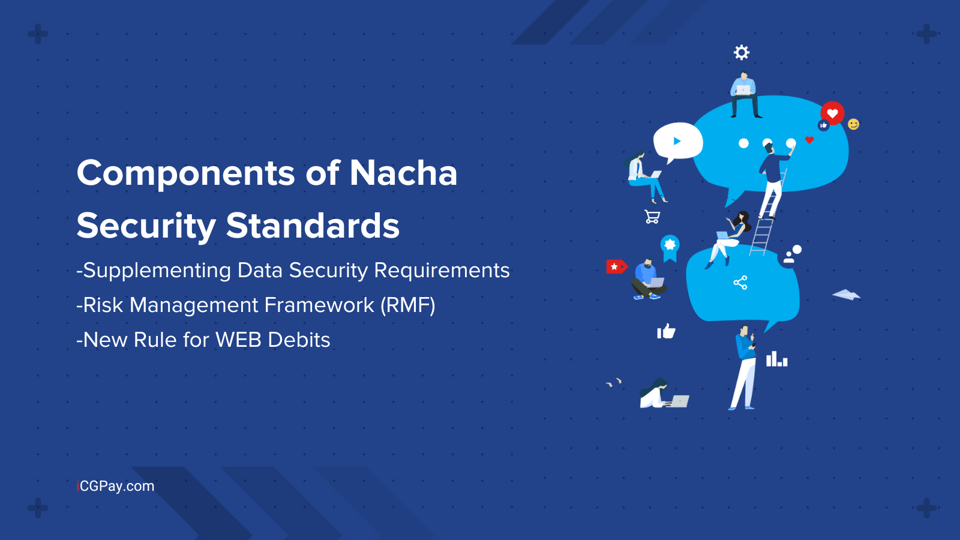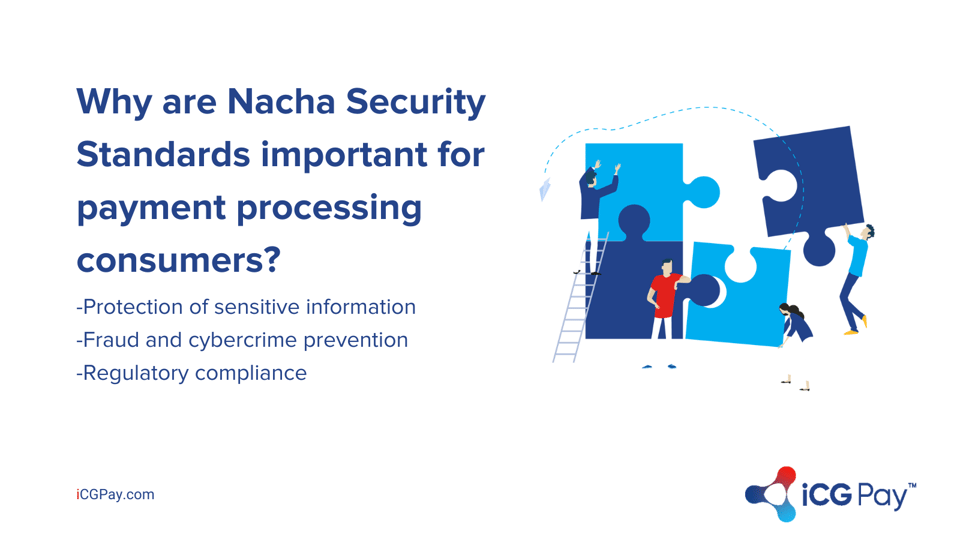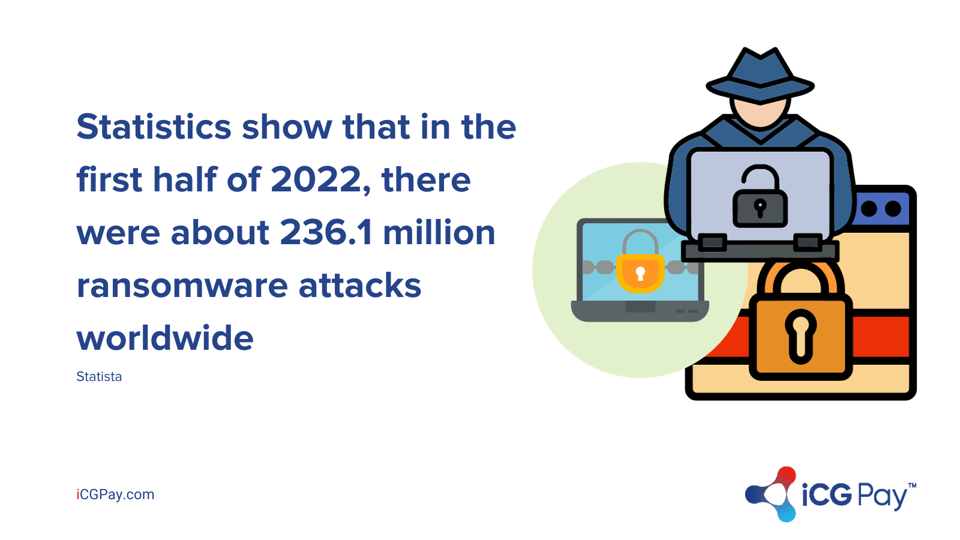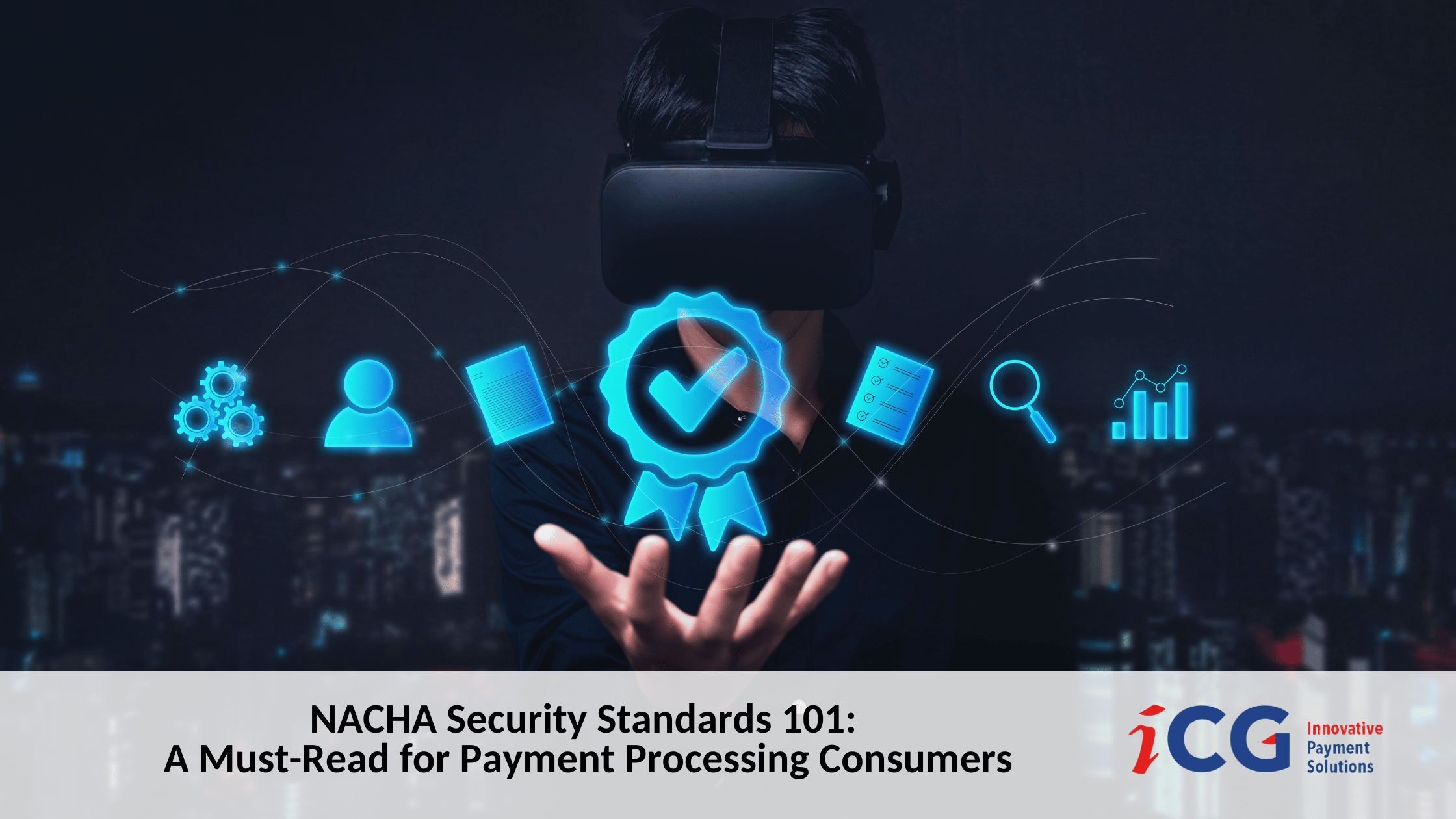Consumers, governments, and all types of businesses are increasingly relying on ACH payments for money transfers, bill payments, and direct deposits, which have led to solid year-on-year growth. For the 10th consecutive year, ACH payments increased by about $1 trillion.
With this exponential growth, the governing body, National Automated Clearing House Association (Nacha), has established frameworks and rules that ensure the ACH network is safe. Every year, Nacha updates a well-defined ACH risk management framework and establishes regulations to enhance fraud prevention and boost overall customer experience.
This blog post will examine some of these security standards established by Nacha for electronic payment processing and why they are important for the consumer to understand.
What are Nacha Security Standards?
Like other digital transaction methods, ACH is also at risk of fraud. However, Nacha has established multiple security standards to fortify ACH security. Here are some of the standards you need to know:

Supplementing Data Security Requirements
Nacha established this rule for all merchants, businesses, billers, and governments that send two million or more ACH payments. According to Nacha, large senders are required to protect account numbers by ensuring they are unreadable when stored electronically.
Risk Management Framework (RMF)
In 2022, Nacha introduced a new risk management framework for banks. The framework was introduced to deal with fraud related to credits and credit returns. In addition, it will reduce fraud when it comes to payroll impersonations, account takeovers, business email compromise, and fraudulent claims for benefits.
New Rule for WEB Debits
To enhance payment security, Nacha extended the rules for WEB debits in 2021. Before this new rule, merchants who accept ACH payments were expected to have a commercially reasonable method to validate routing numbers and customer identity. However, with the new security standards, Nacha also requires account validation.
Why are Nacha Security Standards Important or Payment Processing Consumers?
Whether you are using the ACH network for bill payments or money transfers, you can enjoy the benefits of the Nacha security standards. Let’s look at why they are important.

Protection of Sensitive Information
These security standards come in handy if you are looking to adopt enterprise risk management practices for your ACH network. Sensitive information is vulnerable primarily when in transit. However, the ACH rules ensure that sensitive banking information is encrypted. These standards provide an additional layer of protection to prevent the misuse of sensitive information.
Fraud and Cybercrime Prevention
Nacha is highly focused on providing a secure ACH network. If you are a merchant, Nacha recommends fraud detection tools in WEB. In addition, they also have different types of ACH authorization forms and strict validation procedures that secure your payment processing systems.
Regulatory Compliance
If you use ACH technology, then you must comply with Nacha standards. The security rules align with the existing PCI DSS standards, ensuring that sensitive customer information is safeguarded in all transactions.
What Are the Common Threats to Payment Processing Security?
Data breaches can cost your business millions of dollars. Statistics show that in the first half of 2022, there were about 236.1 million ransomware attacks worldwide. Some common threats to payment processors are malware attacks, data breaches, and phishing scams that can expose sensitive banking information.

However, Nacha security standards can help mitigate these fraud risks by establishing new frameworks to protect all types of businesses. Additionally, every year, Nacha introduces new regulations and operating rules to ensure all users are compliant.
Best Practices for Ensuring Compliance with Nacha Security Standards
If you accept ACH payments, here are the best practices you need in order to comply with Nacha security standards:
Assessing Risk
To protect your organization and customer information, you must first assess any risk in your payment processes. Evaluate the existing technologies to identify areas that have potential loopholes for cybersecurity attacks. With this information, you can improve your security and adopt Nacha regulations.
Improving Security Protocols
Once you've identified the potential risks, you must plan to improve your security protocols. You can adopt technologies such as data tokenization or use iFrame payment processing to achieve the highest levels of compliance and security.
Monitoring System Activity
To prevent fraud within your payment network, you should constantly monitor the activity. This is important because it allows you to spot any potential security breaches. You can spot any fraudulent activities like identity fraud to help you protect sensitive customer information.
How Can You Verify Nacha Compliance?
- Review vendor certifications: A vendor with a certificate from a reputable institution like Nacha is a reliable and secure partner to work with.
- Conduct independent security assessments: Nacha has a list of preferred partners and the top 50 ACH Originators and Receivers. You can use this information to confirm if the firm is Nacha compliant.
Real-World Examples of Successful Nacha Compliance Strategies
Companies comply with Nacha to boost the security of their transactions. Here are some real-world examples of companies that have successfully complied with Nacha:
- ACI Payments became Nacha-certified in 2018. The company specializes in electronic bill processing; therefore, by getting the certification, they can demonstrate their risk management and robust compliance programs to their clients.
- Third-party sender Paychex serves about 650,000 payroll clients. To improve its compliance status, it has an annual Nacha Operating Rules compliance audit and review of its risk assessment framework.
To effectively manage your payment processing systems, you should rely on Nacha-preferred partners only, like iCG. These partners will enhance the security of your ACH payments and protect your sensitive customer information from fraudulent activities. To get started, schedule a call with us today!



